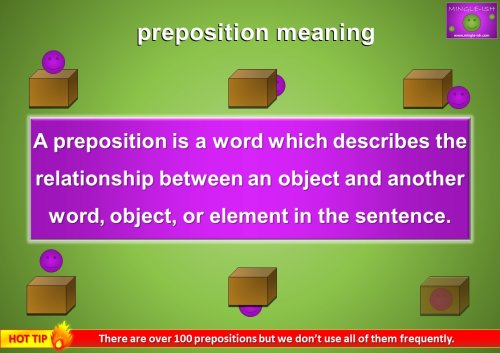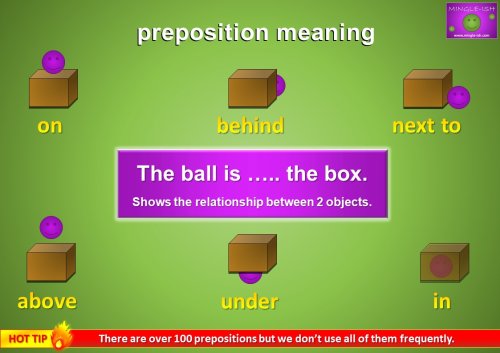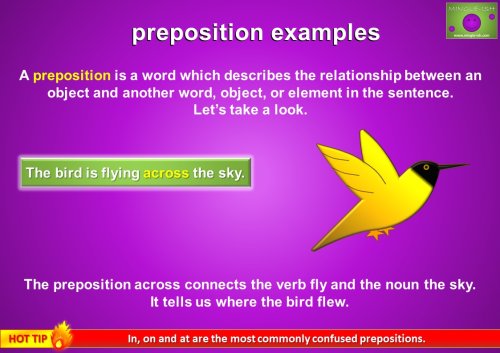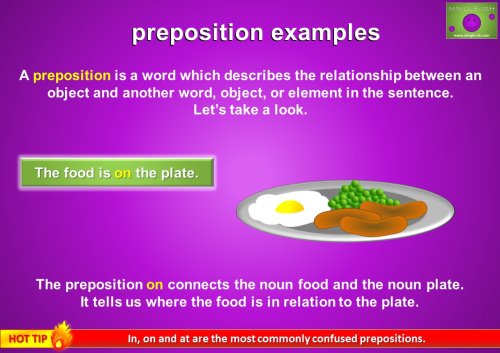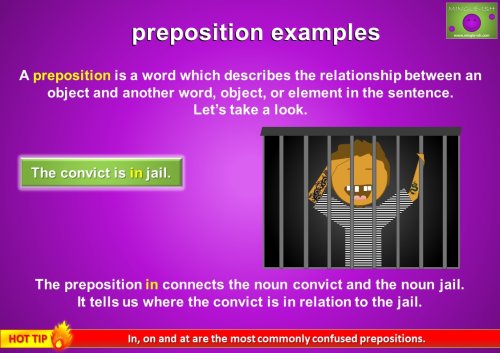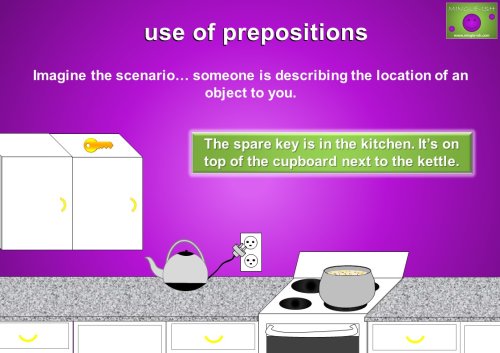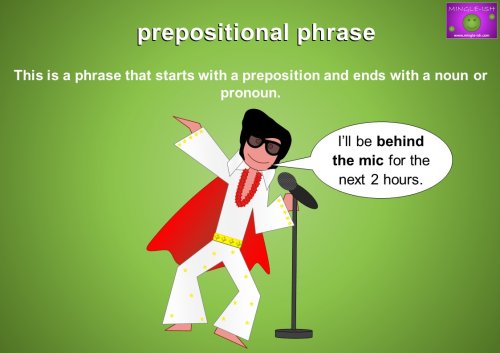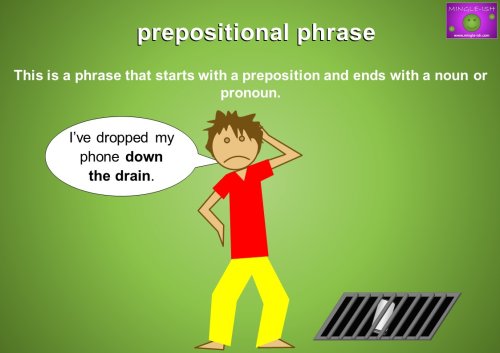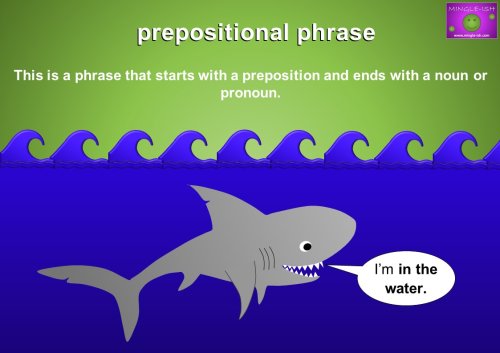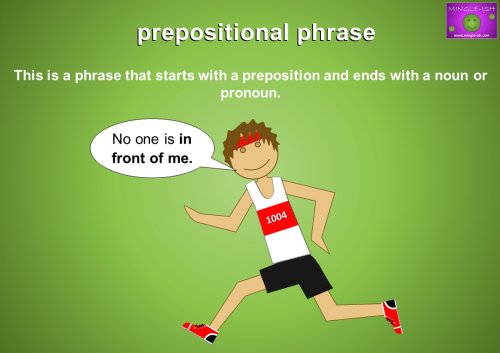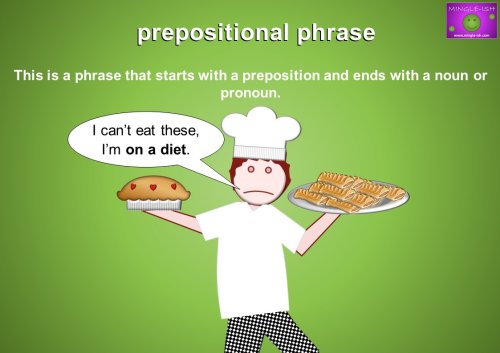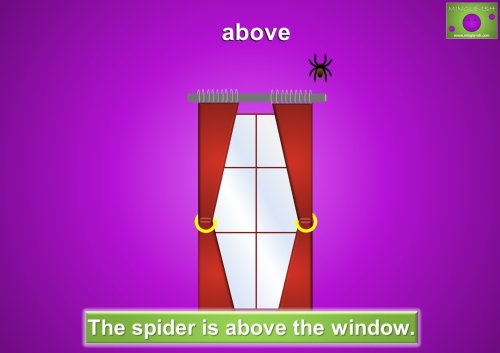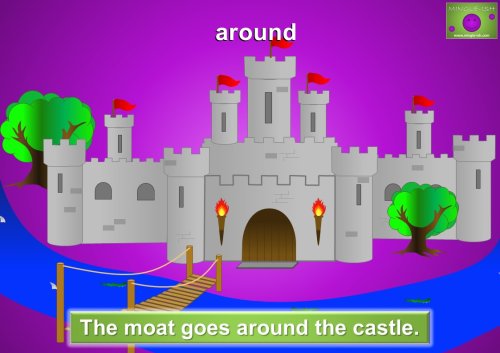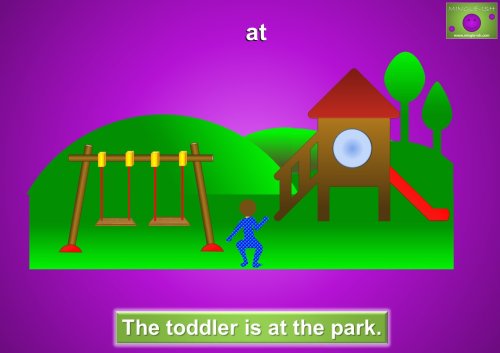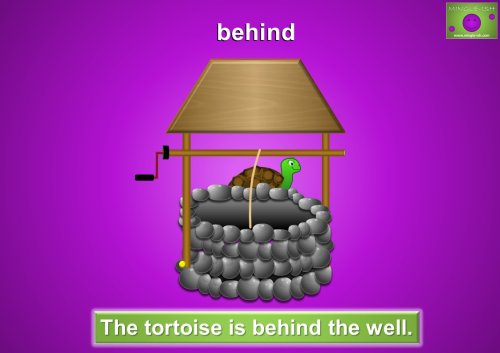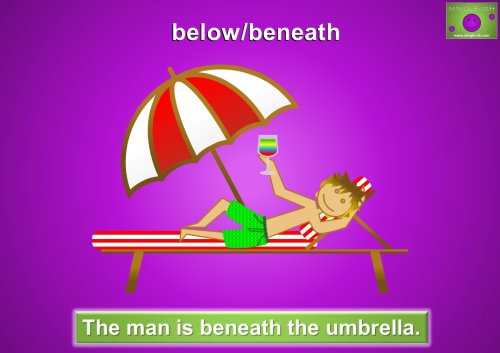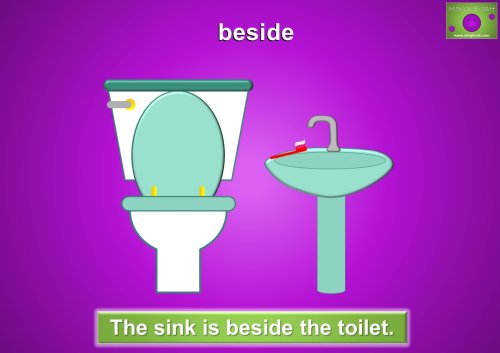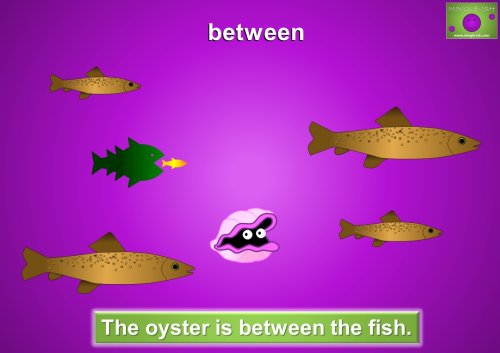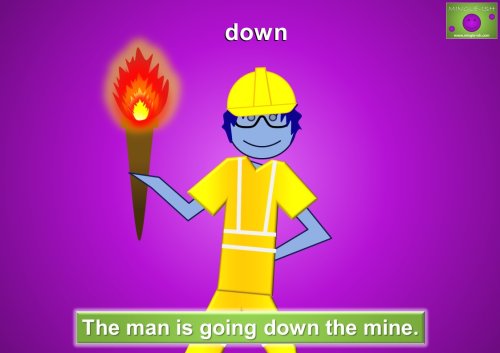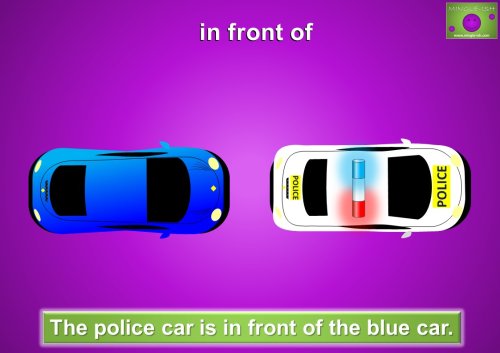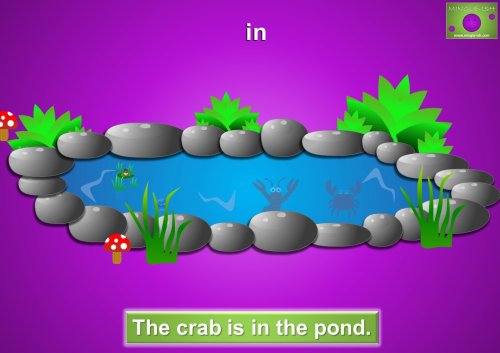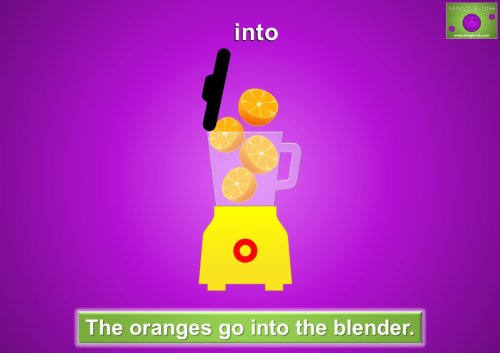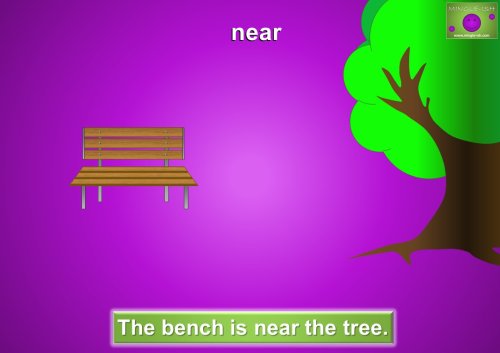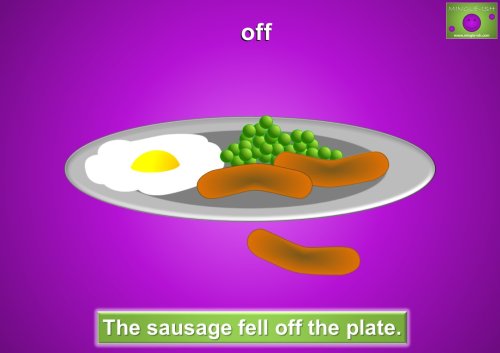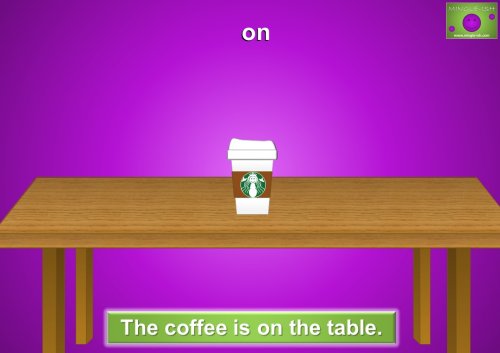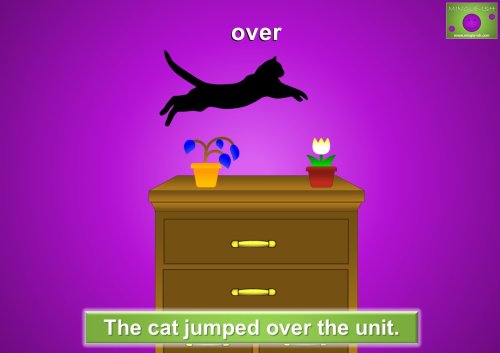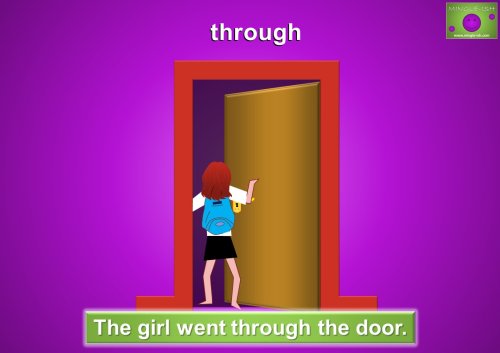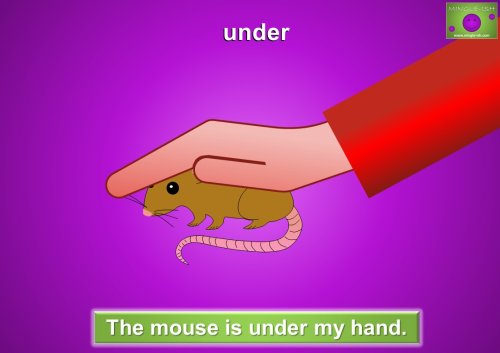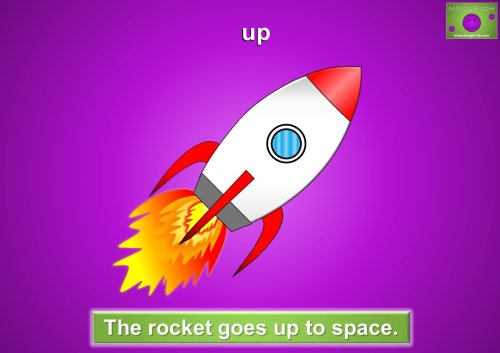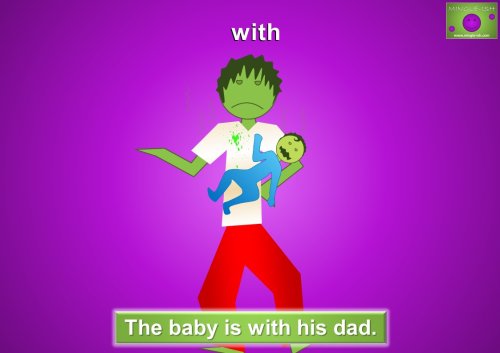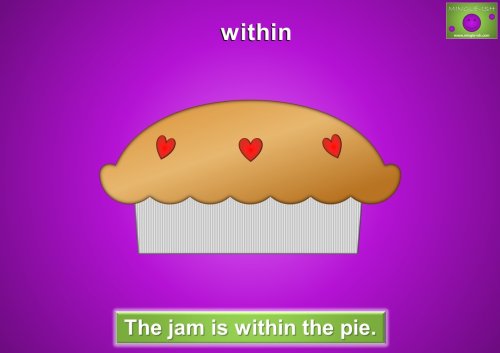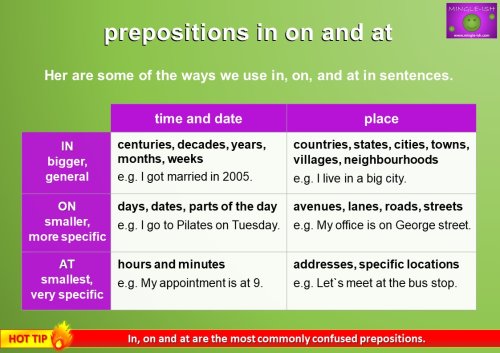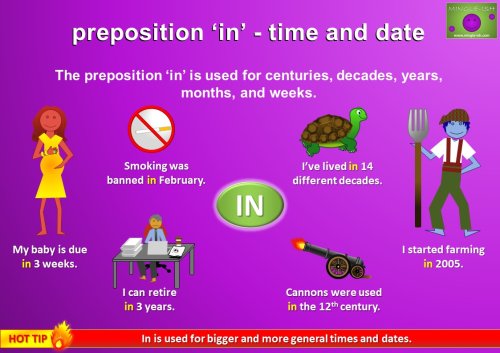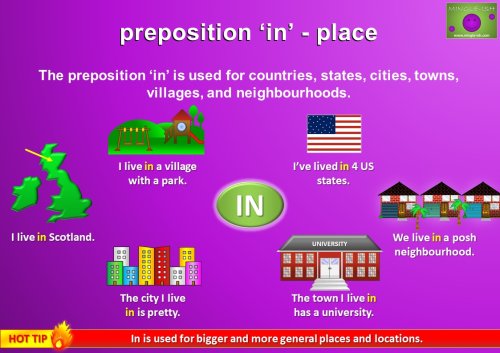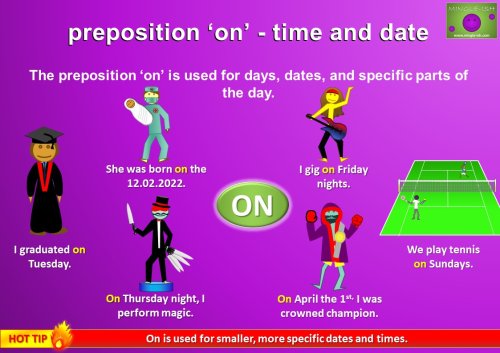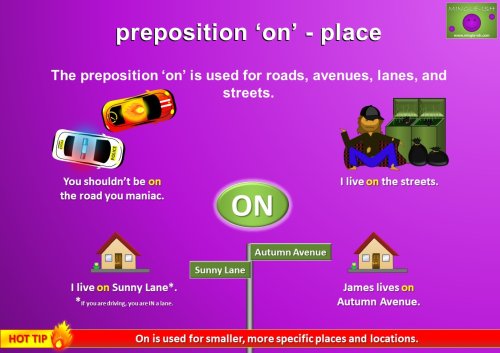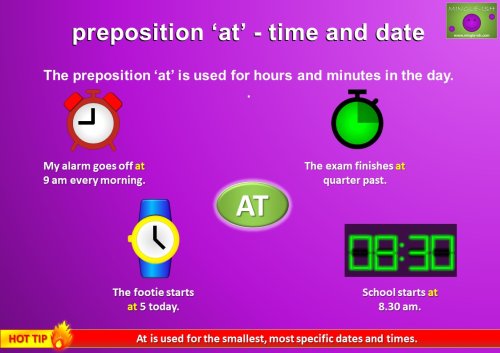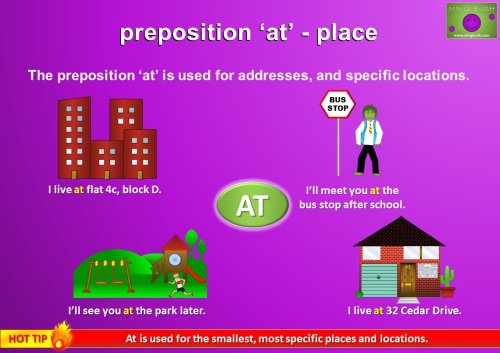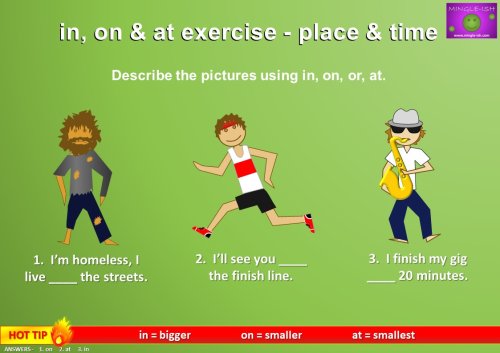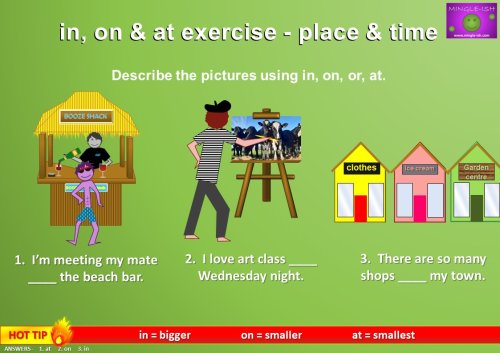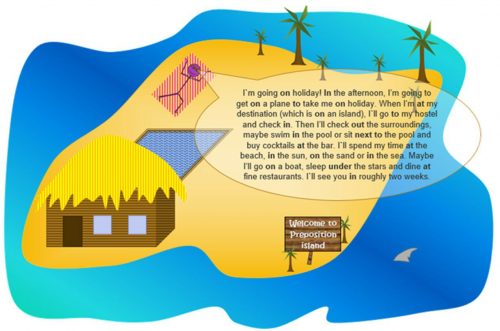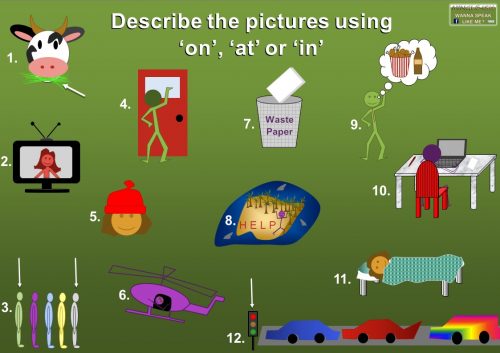Here we have the dreaded propositions, a difficult topic for any English learner so I’ll begin… A preposition is a word which describes the relationship between an object and another word, object, or element in the sentence.
For example:
- The ball is on the box.
- The ball is behind the box.
- The ball is next to the box.
- The ball is above the box.
- The ball is under the box.
- The ball is in the box.
Easy, right? Well, these are just a few of the easier prepositions we have. The bad news is that there are more than 100 prepositions in English. The good news is that not all of them are used frequently. The even better news is that if you make a mistake and use the wrong one, we’ll still understand you.
preposition examples
Let’s start with a few examples so you can understand what a preposition actually is and how they are used in a real sentence.
- The bird is flying across the sky.
The preposition across connects the verb fly and the noun the sky. It tells us where the bird flew.
- The food is on the plate.
The preposition on connects the noun food and the noun plate. It tells us where the food is in relation to the plate.
- The convict is in jail.
The preposition in connects the noun convict and the noun jail. It tells us where the convict is in relation to the jail.
Why are prepositions important?
So, are you all with me? It’s going to get a tad more difficult from here on.
Prepositions are necessary as they provide additional details. They explain the time, space, or logical relationship between other parts of the sentence. This information is often vital.
Let’s take a look at one more example.
- The spare key is in the kitchen. It’s on top of the cupboard next to the kettle.
You don’t know key information about a sentence without prepositions. As you can see from the picture above, they are vital in some situations especially for giving instructions.
prepositional phrases
Prepositions don’t stand alone, they are part of what we call a ‘prepositional phrase’. These begin with a preposition and end with a noun or pronoun. They are very common in English. I’ll give you a few examples.
- I’ll be behind the mic for the next 2 hours.
- I’ve dropped my phone down the drain.
- I’m in the water.
- No one is in front of me.
- I can’t eat these, I’m on a diet.
common prepositions in English
I think it’s now time for you to learn some of the most common prepositions we use in English. The pictures should help you picture them in your mind.
above
- The spider is above the window.
around
- The moat goes around the castle.
at
- The toddler is at the park.
behind
- The tortoise is behind the well.
below/beneath
- The man is beneath the umbrella.
beside
- The sink is beside the toilet.
between
- The oyster is between the fish.
down
- The man is going down the mine.
in front of
- The police car is in front of the blue car.
in
- The crab is in the pond.
into
- The oranges go into the blender.
near
- The bench is near the tree.
next to
- The angel is next to the vicar.
off
- The sausage fell off the plate.
on
- The coffee is on the table.
over
- The cat jumped over the unit.
through
- The girl went through the door.
under
- The mouse is under my hand.
up
- The rocket goes up to space.
with
- The baby is with his dad.
within
- The jam is within the pie.
commonly confused prepositions – in, on, at
The most commonly confused prepositions for English learners are in, on and at. The good news is we understand what you’re trying to say. However, if you want to perfect your speaking skills, you should learn their uses.
Here is an overview of their uses:
- In is used for bigger, general times and places.
- On is used for smaller, more specific times and places.
- At is used for the smallest, most specific times and places.
Let’s take a look in a bit more detail with some examples.
in
- time and date – Used for centuries, decades, years, months, and weeks.
e.g. I got married in 2005. - place – Used for countries, states, cities, towns, villages, and neighbourhoods.
e.g. I live in a big city.
on
- time and date – Used for days, dates, parts of the day.
e.g. I go to Pilates on Tuesday. - place – Used for avenues, lanes, roads, streets.
e.g. My office is on George street.
at
- time and date – Used for hours and minutes
e.g. My appointment is at 9. - place – Used for addresses, specific locations
e.g. Let`s meet at the bus stop.
in, on, at exercises
Test yourself and fill in the blanks with the correct preposition and watch the videos below.
Click on the links below to learn in, on and at in more detail.
test yourself on prepositions
Now you know a lot about prepositions, have a go at these fun prepositions exercises:
- read my stories
- imagine the scenarios
- describe the pictures
If you’re still having trouble with prepositions, send me a message and i’ll help you out.
So, you’ve dipped your toe into the wonderful waters of prepositions. Are you hungry for more? Prepositions are dotted throughout the English language, if you’re feeling brave, why not learn some phrasal verbs or idioms with prepositions.
